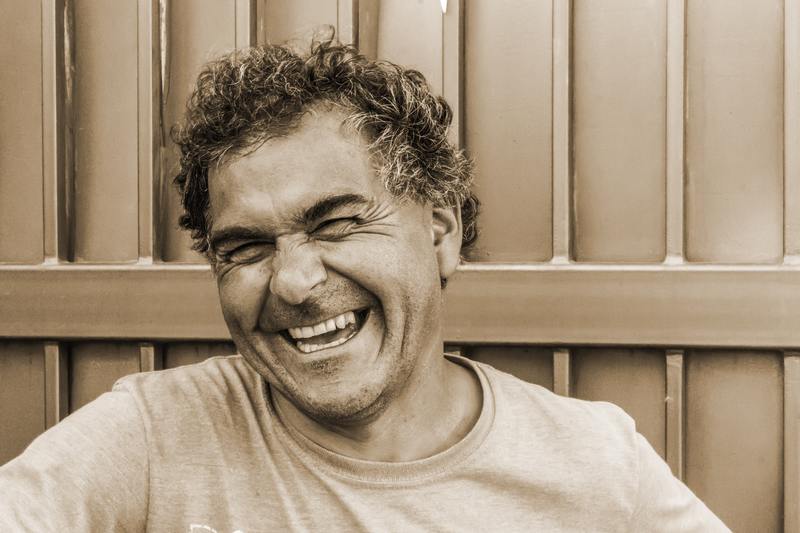New Year's Resolutions: Don't Give Up

“The best resolution is one that you will keep!”
— Dr. Barbara Bushman of Missouri State University
In 2018, only 4 percent of people actually stuck to their New Year’s resolutions. You don’t need to be a mathematician to know how bad of a percentage that is. Let’s face it, both you and I have set resolutions that we have been unable or unwilling to keep. Do you want to change that this year? You likely set some resolutions at the end of 2020. Are you still keeping them?
Whether you are or aren’t, the following tips and tricks from a wide panel of over 25 experts will help you stay on track.
Why you aren’t being successful
“No matter our goals, sometimes we end up making choices or acting in a way that undermines what we really want. Even with the best of conscious intentions, we often allow this self-sabotage to creep in and prevent us from reaching our goals,” said Dr. Bradley Nelson, veteran holistic physician, lecturer, and author from Discover Healing.
Setting goals is easy enough, but actually acting on our goals is much harder. Dr. Nelson points out some of the ways that we might sabotage our success:
- Focusing on failure — We often forget that some of the most successful people are only where they are because they have previously failed a number of times and learned from those experiences. Focus on learning from mistakes, not on beating yourself up when you come short.
- Not celebrating small victories — You don’t have to wait to celebrate your success until the end of your goal. Enjoy the journey and celebrate the baby steps.
- Procrastinating — If you allow fear, dread, or insecurity to control you, you will continue to put off accomplishing your goals. Get rid of these thoughts and you will accomplish much more.
- Faking it — Don’t be afraid of letting people know exactly where you are. The more honest you are, the better people know how to help you.
- Suffering from Imposter Syndrome — This means that you feel that you are not worthy of happiness or success. Write down all that you accomplish; you will soon see that you have done more than you expected and are worth more than you could ever know.
Erika Lee Sperl, a (PES) performace consultant based in Los Angeles adds, "I believe that our inability to stick with the majority of our New Year's resolutions comes down to three things: No one is holding you accountable but yourself, the approach needs changing, but you don't know how, and the goal becomes irrelevant as life situations change."

How to choose a resolution
To start, you should not make a long list of resolutions. If you did that, look over them and pick one that you would like to focus on. Dr. Susan Besser, MD, MBA, FAAFP, and CIME at Mercy Medical Center suggests that making multiple resolutions will set you up for failure.
She also suggests that you treat any resolution you make as a goal. She said, “Decide what one thing (that you can change) is upsetting you the most, then make small changes to improve yourself in that area.”
If you do end up slacking off a bit, be kind to yourself. If you find yourself getting stuck, Dr. Besser recommends evaluating what has happened and looking for positive changes to make to your current situation. If you can do this, you will be able to maintain a happy and healthy outlook during your journey to change.
Fitness resolutions
A recent study by Finder found that over 39 percent of Americans set resolutions to improve their health. These resolutions are often to lose a certain amount of weight or increase physical activity. To prevent burn out, here are some suggestions to make this goal more attainable:
- Start small — If you hope to run a 5k in the near future, Bushman recommends that you start with a walking program. Work your way into things so that you don't get burned out.
- Take a walk — Joyce Shulman, Founder of 99Walks said that walking has incredible benefits for your mind, your mood, and your body. It offers time and space free of distractions, fuels your creativity, and is the easiest way to effectively improve your fitness.
- Facilitate more movement — Teri Dreher, Founder, RN, CCM, and BCPA with NShore Patient Advocates suggests that you park at the further end of the store lot or consider getting a fitness tracker and start counting steps.

“Improving posture provides a plethora of health improvements, from reducing torso pain, arthritis pain, knee pain, and of course back pains. Gastrointestinal issues are reduced or corrected by improving posture, and mental acuity is improved. It involves correcting a lifetime of living in bad habits, and that’s not an easy pattern to change.”
— Bill Schultz, Founder of Alignmed
Have you ever considered working to improve your posture as a New Year’s resolution? Shultz suggests that improving your posture is one of the most important resolutions that we could make for ourselves.
If you have recently experienced unexplained back or neck pain, it is possible that your posture is poor. Shultz has found that this pain begins with soreness, turns into inflammation, and then becomes pain and discomfort. Common symptoms for poor posture include:
- A forward lean when standing straight
- Fatigue throughout the day
- A slow metabolism
Alignmed has created clothing that acts as a posture corrector. It can be worn while working in the office, when you are out and about, or when you are participating in physical activities. Some professional athletes use it during training to improve performance. If you are looking for help with your posture, it may be worth looking into.

Get more sleep
Do you get eight hours of good sleep each night? The reality is that most of us don’t. We should, but we get side tracked with friends, family, TV, video games, or other activities. Imagine how good it would feel to get a solid eight hours of sleep each night. Here is what the experts have to say about sleeping habits:
- Routine — Bill Fish, Founder of Tuck.com, feels that the quantity of sleep is not as important as the quality of sleep that you are getting. He said, “Our bodies are equipped with an internal 24-hour clock known as our circadian rhythm. It tells our body when to rest and when to be alert, and craves consistency. Thus, going to bed and getting up at the same time each day will help your body immensely.”
- Time — It is not uncommon for us to plan so many things in our day that we end up staying out later than we would like. If this is a habit of yours, Jocelyn Nadua, Registered Practical Nurse and Care Coordinator for C-Care Health Services, suggests that you start trying to go to bed a bit earlier. She said, “It's okay to go to bed late on some occasions, but those few extra hours of sleep you get when you go to be early will go a long way in keeping your body healthy.”
- Sleep apps — Dr. Tanya Altmann, Pediatrician and Author, recommends trying out a sleep app to better your sleeping patterns. She points out that “smart apps for sleep can track sleep cycles, aid in falling asleep, or potentially guide your dreams.”
Get more exercise
Who doesn’t want to take better care of their body at the beginning of a new year? There are so many ways that you can tackle physical health. To start, here are five tips from Billy Ferguson, CEO and Founder of Trivelo.
- Keep variety in your exercise regime. Mix things up and have some fun.
- Resist routine. Keep your body guessing and prevent muscle memory from reducing the effectiveness of your training.
- Combine cardio, strength training, and low resistance stretching based exercises to create all round fitness and maximize the time invested.
- Vary times of training and type. Don’t feel the need to workout for exactly an hour every day.
- Reward all efforts from 50-mile bike rides all the way down to getting 10,000 steps of walking in a day.

Sometimes improving physical health can be intimidating. That being said, there are ways to make it more palatable. If you are not the best at going to the gym or working out, it is important to start with baby steps. Renata Trebing, Founder of Nourish With Renata suggests that you get out and move your body for 30 minutes each day.
To help you create a habit, she offers these three suggestions:
- Select a time of day that works for you (during a lunch break, nap time, or before dinner, etc.)
- Hold yourself accountable (write your goal down)
- Invite people that you are close to to help you (build a support group)
“You should exercise (moderate physical activity) 150 minutes per week: 5 days of 30 minutes each session.”
— American Heart Association
Jocelyn Henning, MS, PA-C, Stroke Program Director, and Director of Patient Safety at Mercy Medical Center, suggests pairing fitness with nutrition by setting regular eating and exercise patterns six out of seven days per week. The seventh day is a day for you to enjoy your favorite meal or some treats.
If, like the majority of us, you have a couple of bad days and are unable to meet your daily goals, just jump right back into it. Henning said, “One or two not so good days aren’t an excuse to ruin the rest of the week.”
Improve your nutrition
Making changes to your eating habits is easier said than done. One of the best ways to improve your health is eating a nutrient-rich diet. Dr. Stacey Bell, DSc and RDN with Drink Nutrient, offers a few suggestions to help you get started:
- Stay hydrated
- Don’t count calories, count nutrients
- Avoid the “Naughty Nine”
- preservatives
- gluten
- GMOs
- excess sugar
- excess sodium
- acrylamide
- artificial flavors/sweeteners/dyes
- binders/emulsifiers
- Whole Foods-banned ingredients.
Expert parenting tip:
Pack a lunch for your kids. There are many resources to help you get some inspiration. Jessica Gury, Cofounder and CEO of Teuko, a company that helps parents know how to pack good lunches for their kids, suggests that parents pack lunches for their kids to help them develop healthier eating habits.

Making changes to your diet usually will require you to replace the bad foods that you are eating with healthier options. Amy Van Sydow Green, MD, MS, and RD with Honey Brains, adds her recommendations on eating better foods:
- Increase veggies and fruit in your daily diet.
- Aim to make half of your plate vegetables at lunch and dinner.
- Add a fruit and veggie smoothie with your breakfast egg.
- Slice up an apple to eat with nuts for a nourishing evening snack.
- Get in the habit of having a side salad with dinner.
- Eat more whole foods and less processed foods. For example, fish, chicken, nuts, eggs, fruits, and vegetables are more filling and can help you manage a healthy weight.
Stay hydrated
“Proper hydration is not only essential to health, it regulates body temperature, it helps your kidneys function, helps your digestive tract move things along, and helps your body send essential nutrients/electrolytes to their proper destinations in your body.”
— Amanda A. Kostro Miller, RD and LDN with Smart Healthy Living
It's important to stay hydrated throughout the day, every day. But that doesn't have to mean just drinking more water. Though this would be ideal, it is certainly only one of many sources of hydration. Miller suggests that you can help keep your body hydrated by consuming the following: water, broths, juices, teas, fruits, and veggies. All of these sources can be used to increase your fluid intake during the day.
Proper hydration for you can be determined by a registered dietitian (there may be certain health conditions that have specific fluid recommendations). For more suggestions, see what Medical News Today has to say.
So how can you tell if you are dehydrated? It's actully pretty simple. According to Miller, unless you have any conditions that may cause your body to act differently (kidney disease, diuretic medications, etc.), you will be able to judge your hydration based on the color of your urine. If it is dark yellow or amber, it is likely that you need to increase your hydration. Ideally, urine should be clear or very pale yellow.

Breathe better
Have you ever thought about making a goal to improve your lung capacity? It may sound silly, but some of the things we do every day really do affect our ability to breathe. Bob Prichard, President of Somax Performance Institute, shares some of his findings below:
- Stop smoking — Anything (vaping, marijuana) that you inhale that is not clean air will irritate the sensitive lung tissues. The result is that you gradually, imperceptibly lose chest expansion, lung capacity and brain oxygen.
- Wash your hands — Colds and the flu can cause similar effects on your lungs as smoking.
- Avoid corset undergarments — Want a wasp waist? Say goodbye to your brain oxygen.
Travel more
Did you know that traveling can help reduce stress levels and boost self esteem? In a recent article by Lonely Planet, travel was identified as an act of self care. It is not uncommon for people to want to travel more, but the number of those who actually do is fairly low. While traveling requires time, energy, and money, in exhange you get experience, memories, and a richer life.
“Travel is a key component to maintaining a healthy and happy lifestyle,” said Sahara Rose De Vore, Founder of The Travel Coach Network. She continues, “People are drawn to travel for reasons including healing, connecting, exploring, adventure, soul searching, and other fulfilling purposes. Therefore, travel is a health resolution that people should keep up with all year.”
If you would like to travel more, but always run into roadblocks, here are some tips from De Vore to help you change that:
- Treat travel as self-care
- Be involved in the planning process (don’t just leave it to a travel agency)
- Set a specific budget and plan accordingly
- Put money aside each month into a travel fund
- Create a travel vision board
- Explore the hidden gems of your hometown, state, or country on a stay-cation
- See if your employer offers any travel perks (remote work or volunteering abroad)
The better you are at caring for yourself, the more effective you will be in all that you do.

Improve your mental health
Have you ever set a goal but felt that you would never be able to achieve it? When we set lofty goals but are not in the mental space to take them on, we can easily become discouraged. Strive to look at your goals through a positive lens.
McKenzie Caldwell, MPH and RDN with Feed Your Zest, feels that the best type of diet is no diet at all. Thinking that you are on a diet can be restrictive and mentally taxing. She recommends sticking to a couple of guidelines (rules) to improve your physical and mental state. This is called intuitive eating. She said, “Intuitive eating is all about tuning into your inner signals of hunger, fullness and cravings. In this way, you can pursue a healthier lifestyle, and have better body image and mental health in the process.”
If you start getting anxious or upset about your eating and fitness goals, take inventory of your social media feeds. If you are following people or companies that discuss dieting or exercise, unfollow them. There is no point focusing on others successes when you should be enjoying your own journey through conscious decision making.
Do you expect to be perfect immediately when you start a new goal? Let’s face it, you won’t be. Everybody makes mistakes. Everybody falls short in some capacity and needs to start over. To help you navigate this in your life, Cynthia Thurlow, Functional Medicine Nurse Practitioner, Nutrition Expert, and Wellness Entrepreneur, shares four key tips:
- Be honest with yourself — Analyze what is working and what is not without making excuses.
- Consistently assess — No matter your goal, take the time to assess your progress and identify places where you are doing well and places that you think you could improve.
- Take time — Give yourself at least 30–60 days to transition into a new habit. Change requires time.
- Turn around — Take some time every so often to look back and see how far you have come. You will be surprised to see how big a difference each small change can make.
The Top Men's Health and Wellness Companies


The Top Men's Health and Wellness Companies


Related Articles
Men's Health and Wellness
5 Benefits of Couples Working Out Together
April 26th, 2023
Men's Health and Wellness
Finasteride for Hair Loss: What Is It and How Does It W...
Men's Health and Wellness
Men's Guide to Pregnancy: What to Know
Get Our Newsletter - Be in the Know
Sign up below to receive a monthly newsletter containing relevant news, resources and expert tips on Men's Health and Wellness and other products and services.
We promise not to spam you. Unsubscribe at any time. Privacy Policy


